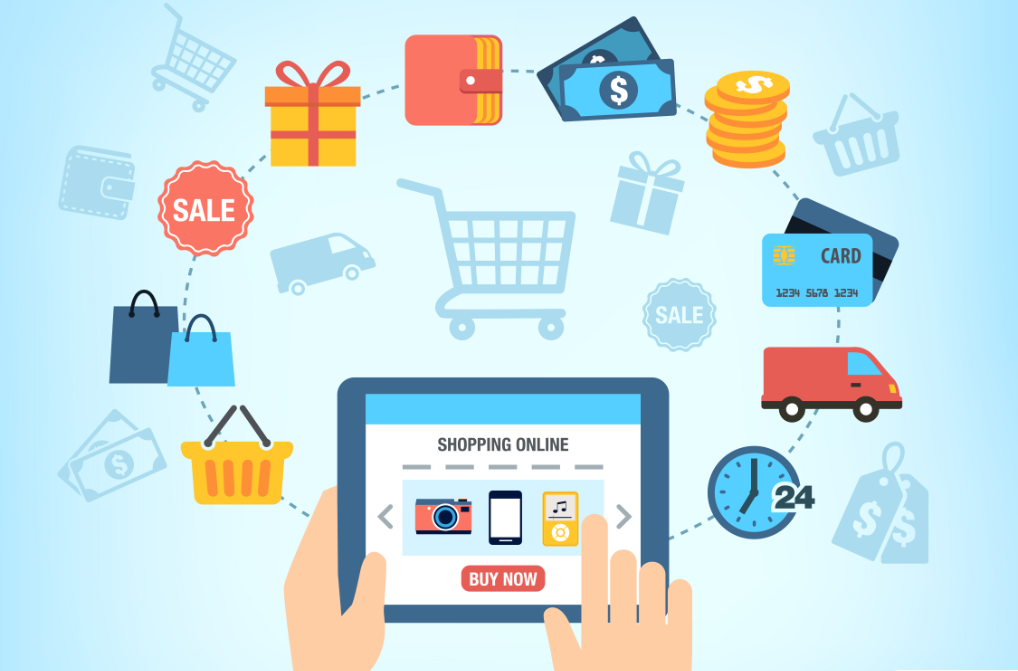A Comprehensive Guide to Why This Trend Is Reshaping Customer Actions and the Diverse Products That Are Altering Hands Online
In today's swiftly advancing industry, the merging of personalization, sustainability, and technological advancement is substantially modifying consumer behavior. Recognizing the hidden aspects driving this change is necessary for businesses intending to flourish in this new setting, triggering a closer exam of the ramifications for both customers and brands alike.
Trick Factors Driving Modification
Increasingly, customer actions is being formed by an assemblage of key variables that drive substantial change in the marketplace. One of one of the most pivotal influences is the quick advancement of innovation, which has changed exactly how customers access info and make investing in decisions (Ecommerce). The expansion of smart devices and social media platforms allows consumers to participate in real-time communications, resulting in even more enlightened selections and heightened expectations for personalization
Additionally, market changes, consisting of the rise of millennials and Generation Z, are redefining market characteristics. These generations prioritize experiences over material goods and seek brands that line up with their worths, such as openness and credibility. This shift obliges organizations to adjust their strategies to resonate with these conscious consumers.
Additionally, the impact of globalization can not be neglected. With the ability to shop across borders, consumers are revealed to a bigger array of products and brand names, promoting an affordable atmosphere where high quality and client service become extremely important. Together, these variables develop a complex landscape that requires organizations to be dexterous in their strategy, ensuring they meet the developing demands of a diverse and enlightened customer base.
The Increase of Sustainable Products
Just how can brands effectively react to the growing customer demand for lasting items? To navigate this shift in customer behavior, brands have to focus on openness and authenticity in their sustainability efforts.
Moreover, technology in product layout and materials is crucial. Business are increasingly taking on biodegradable, recycled, or upcycled products to reduce ecological influence. This not only allures to consumers' preferences however also placements brands as leaders in sustainability.
Engaging in area initiatives and sustaining ecological causes can additionally enhance brand loyalty. Customers are more inclined to sustain brand names that actively add to sustainability initiatives and show social responsibility.

Customization in Shopping Experiences
Customization has actually become an essential component in enhancing buying experiences, as customers increasingly seek customized communications that resonate with their private choices. This change is driven by the growing expectation for brands to recognize and cater to one-of-a-kind customer requirements, which has actually brought about innovative techniques in retail.
Ecommerce systems currently use sophisticated algorithms that examine surfing history, purchase behavior, and market info to curate customized product referrals. These customized experiences not just increase user engagement yet also foster brand loyalty, as customers are much more likely to return to platforms that offer appropriate tips.
Moreover, personalization extends past item recommendations; it includes targeted advertising methods, personalized email campaigns, and navigate to this website personalized internet experiences. Brand names that harness the power of information analytics can produce a much more smooth and pleasurable buying experience. For instance, vibrant prices designs and personalized discounts can considerably enhance consumer satisfaction, as they reflect an understanding of specific purchasing actions.
Eventually, the focus on customization in purchasing experiences stands for an essential change in customer behavior. As brand names continue to adapt to these advancing expectations, the capacity to provide customized communications will be essential for keeping competitive advantage in the retail landscape.
Effect of Social Media Trends
The surge of personalization in purchasing experiences has been dramatically influenced by social media sites patterns, as systems end up being main to consumer involvement and brand communication. Social media makes it possible for brands to collect extensive information about consumer choices, behaviors, and communications, which informs customized marketing methods (Ecommerce). This data-driven approach enables organizations to tailor their offerings, improving consumer complete satisfaction and commitment

Social media site also promotes community among customers, urging discussions around products and brand names. This feeling of belonging impacts purchasing decisions, as customers are more probable to purchase products recommended by their peers or areas. User-generated content, such as evaluations and testimonies shared on social systems, dramatically influences brand name assumption and trust.
The Future of Online Customer Behavior
What will the future hold for online consumer behavior as technology continues to develop? Progressively, consumers are expected to prioritize personalization and convenience in their online shopping experiences. As artificial intelligence and artificial intelligence technologies advancement, sellers will harness data analytics to create customized purchasing experiences, preparing for customer Continue requirements and preferences more accurately than ever.
Moreover, the increase of immersive technologies, such as augmented fact (AR) and digital truth (VR), will redefine item interaction. Consumers will certainly have the ability to imagine products in their very own atmospheres before making an acquisition, hence lowering uncertainty and boosting contentment.
Sustainability will also play an important role fit future consumer behavior. As recognition of environmental issues expands, customers are likely to favor brands that show commitment to lasting practices, affecting getting decisions and brand name loyalty.
In addition, the combination of voice business and smart home tools will enhance the buying procedure, making transactions extra available. In this evolving landscape, services must adapt to these changes, focusing on advancement and customer interaction to continue to be competitive (Ecommerce). The future of on the internet customer behavior guarantees to be vibrant, driven by technological innovations and changing consumer worths

Verdict
The continuous transformation in customer behavior is dramatically affected by the merging of personalization, sustainability, and technical developments. As brand names adapt to fulfill the demands of millennials and Gen Z, the focus on tailored experiences and honest sourcing becomes progressively pronounced. The combination of social media additionally amplifies these adjustments, fostering neighborhood interaction and shaping buying choices. As a result, the evolution of the on-line marketplace proceeds to mirror these shifting dynamics, proclaiming a new age for customer communications and product offerings.